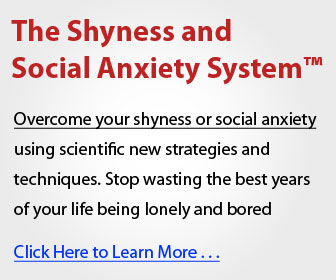The surge of anxiety preceding an upcoming event is a universal experience, woven into the fabric of the human condition. Whether it’s a job interview, a social gathering, or a public presentation, the anticipation of future events can elicit a range of emotions, often dominated by anxiety. As we delve into the psychological intricacies of this phenomenon, we uncover the underlying factors contributing to pre-event anxiety and explore effective strategies to manage and mitigate these apprehensions.
The Nature of Anticipatory Anxiety
Anticipatory anxiety, also known as pre-event anxiety, is a natural response to the uncertainty of future events. It arises from the interplay of psychological, physiological, and cognitive factors, each playing a role in shaping the individual’s emotional landscape. Understanding the multifaceted nature of anticipatory anxiety is crucial for developing tailored coping mechanisms.
- Cognitive Appraisals and Catastrophic Thinking: At the heart of anticipatory anxiety lies the cognitive appraisal of the upcoming event. Individuals tend to engage in anticipatory thinking, envisioning various scenarios and potential outcomes. Catastrophic thinking, wherein individuals anticipate the worst possible outcome, can significantly contribute to heightened anxiety levels. Recognizing and challenging these negative thought patterns is a pivotal step in managing anticipatory anxiety.
- Fear of Judgment and Social Evaluation: The fear of being judged by others or facing social evaluation is a common thread in pre-event anxiety. Social anxiety, a subtype of anxiety disorder, can magnify these concerns, leading individuals to anticipate scrutiny and negative appraisal. Understanding the roots of social anxiety and addressing the underlying fear of judgment is crucial for alleviating anticipatory anxiety in social settings.
- Physiological Responses: The body’s physiological response to anticipatory anxiety is orchestrated by the autonomic nervous system. Increased heart rate, muscle tension, and a surge in stress hormones are common manifestations. These physiological changes are evolutionary adaptations preparing the body for a perceived threat. However, in the context of upcoming events, these responses can contribute to a cycle of escalating anxiety.
Strategies for Managing Anticipatory Anxiety
- Cognitive Restructuring: Cognitive-behavioral strategies, such as cognitive restructuring, focus on identifying and challenging irrational thoughts associated with anticipatory anxiety. Encouraging individuals to reframe negative thoughts, replace catastrophic thinking with realistic appraisals, and cultivate a more balanced perspective can be instrumental in reducing anxiety levels.
- Mindfulness and Relaxation Techniques: Incorporating mindfulness practices and relaxation techniques can help individuals anchor themselves in the present moment. Mindfulness-based stress reduction (MBSR) and deep-breathing exercises can mitigate physiological responses, fostering a sense of calmness and centeredness.
- Gradual Exposure: Gradual exposure to the source of anticipatory anxiety can be an effective therapeutic approach. By incrementally exposing oneself to the elements of the upcoming event, individuals can desensitize their emotional response, building resilience over time.
- Social Skills Training: For those grappling with social anxiety, social skills training can enhance interpersonal competence and confidence. Learning effective communication, assertiveness, and coping strategies for social situations can empower individuals to navigate social events with greater ease.
- Positive Visualization: Encouraging positive visualization involves guiding individuals to imagine successful outcomes and positive experiences related to the upcoming event. This technique leverages the power of the mind to create a mental blueprint for a positive and empowering experience.
Conclusion
Anticipatory anxiety about upcoming events is a universal human experience, stemming from a complex interplay of cognitive, physiological, and emotional factors. Recognizing the nature of pre-event anxiety and implementing tailored coping strategies empowers individuals to face these situations with resilience and confidence.
As we navigate the intricate landscape of anticipatory anxiety, it is essential to view it not merely as a hurdle but as an opportunity for personal growth and self-discovery. By understanding the roots of our apprehensions and embracing effective coping mechanisms, we pave the way for a more confident and fulfilling engagement with the events that shape our lives.



